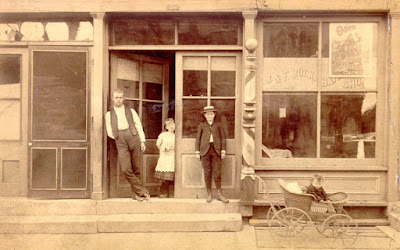There have been barbers for as long as history has been recorded. Razors have been found dating back to the Bronze Age, and shaving is mentioned in the Bible. In
Barbering was one of the few professions open to black men in the nineteenth century, so several shops in Sandusky were operated by African Americans. In the Firelands
Pioneer of July 1888 Rush Sloane
states that Grant Ritchie, an African American, opened the first barber shop in
Sandusky Sandusky
Mr. Lott’s advertisement appeared in The Daily Sanduskian on
January 31, 1851.
John Lott was among the several African American citizens of
Sandusky Follett
House Museum
Barber shops continue to thrive all over America

 this blog
this blog







2 comments:
Black barbers didn't cut black men's hair. If they did then whites wouldn't patronize them which is why it's unlikely that plans to for escape to Canada were discussed.
The Grant Ritchie spoken of here was a Free Black American born in 1805 in Ohio. He fled to Canada from Ohio after he was brought up on charges for helping enslaved men escape to Canada through the UGRR. To avoid prosecution for “stealing property” he fled to Canada himself. The men he served were white and many were abolitionists who assisted in helping enslaved Africans in the U.S. escape to Canada. The person who was to prosecute him was actually the one who warned him to escape and he always wondered why the prosecutor would help him but he later found that prosecutor had become an abolitionist. He was a lawyer named Lucas Beecher. https://sanduskyregister.com/news/372524/black-history-month-the-backstory-on-lucas-beecher/
Post a Comment